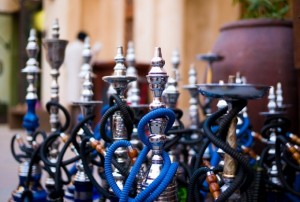
New research conducted by NYU and released on January 25, 2016 indicates that workers at hookah bars are inhaling very hazardous levels of carbon monoxide and nicotine from secondhand smoke simply by working at these facilities. The toxins found in their lungs are linked to inflammation, as well as serious airway and heart diseases. In fact—contrary to the belief that hookah pipe smoking is safe—in some of these workers, their lungs resembled those of heavy cigarette smokers.
Secondhand smoke is still the third leading (preventable) cause of death in America, as it leads to 3,000 deaths due to lung cancer and 35,000 due to heart disease—in innocent people who have never even picked up a cigarette. So what can the public do to ensure that they protected, and do employees exposed to this secondhand smoke have any recourse?
Secondhand Smoke and General Anti-Smoking Bylaws
Unfortunately, hookahs are sometimes exempt from clean indoor air laws, which are designed to protect people from secondhand smoke. However, as more and more evidence emerges concerning how damaging they can be, regulators will need to extend these laws to cover these facilities in order to properly protect the public.
The Law in Louisiana
The Louisiana Smokefree Air Act’s definition of secondhand smoke actually does cover smoke that comes from a hookah. However, the law also exempts “retail tobacco businesses,” thus hookah lounges—the facilities in which this secondhand smoke is seriously threatening employees—could end up being exempt from the law.
However, this does not mean that local governments are barred from adopting smoke-free laws via passing local ordinances regulating hookah lounges. The material used for hookah pipes is technically smoking tobacco, meaning that these facilities also need to be careful about selling to individuals that are under the age of eighteen.
In addition, county public health departments have the power to order hookah lounges to ban smoking, citing public health threats where there are state laws against smoking in public places where there are employees. In fact, this example—as set by Seattle & King County health department—could pave the way for other county health departments, as the county explained that although the hookah bars in its county claimed to be exempt because they are “private clubs,” in fact, by having employees and being open to the public, they operate like any other club, and indoor smoking laws thus apply.
Environmental Hazard Attorneys
As new companies (and habits) emerge, often they end up being hazardous and harming people before the proper studies can be done and regulations in place. If you have been harmed by a negligent or harmful business practice, contact our personal injury and environmental hazard attorneys today. We’ve been litigating against these bad actors for years, and we can help you bring your case.
